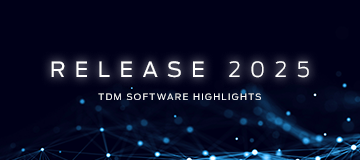Industry 4.0 has led to a huge amount of events, reports, and even research projects. On the other hand, it is said that German companies would sleep through the digital revolution. How do those go together?
Unfortunately, this is correct. It is excellent that the German government has taken this initiative. German engineering is indeed still a concept around the world. However, politics have noticed that many things are changing through the ubiquitous digitization in the world, which can cost Germany the leading role as an engineering country. The pain threshold has not probably been reached yet, especially for smaller and medium-sized companies. Many think that it will all carry on as it has before.
What is causing this reluctance in companies?
In order to actually implement the "smart factory," companies need a clear idea about the advantages and the risks. Without risk, there is no progress. German companies have a hard time with this realization. They want 100 percent security, but must start with solutions that are 50 or 60 percent secure. Take cloud computing: There is no doubt that this IT model means less security. However, you win something as well: Flexibility and Integration.
What can the "Industry 4.0 Collaboration Lab“ change?
Many things, I hope. When I received the call to come to Karlsruhe in 2003, I was able to convince the university management about the importance of innovative teaching and research in the field of engineering supported by modern information and communication technologies. Thus, I was able to bring the Lifecycle Engineering Solutions Center (LESC) to life in 2008; and with it the newly established Industry 4.0 Collaboration Lab. The main idea is that a company can bring their individual problems from the field and we will work on a tangible solution.
What role do the companies involved play?
Through our collaboration partners like Bechtle, SolidLine, or TDM Systems, we meet the end users. We then offer them the possibility with us that they will go through specific scenarios virtually using their data. After we have jointly identified the problems, we advise them on how they can fix it in the best and most cost efficient way possible. Through learning by doing, we demonstrate the practicability of an individualize solution, in very concrete terms.
Jivka Ovtcharova – Mediator Between the Worlds

Jivka Ovtcharova was born in Bulgaria and came to Germany 27 years ago. As a graduate engineer with a dual doctorate in mechanical engineering and information technology, the verbally eloquent woman quickly worked her way to the forefront of industry and research: After successful industrial activity at GM / Opel AG, she is now a professor and director of the Institute for Information Management in Engineering (IMI) at the Karlsruhe Institute of Technology (KIT). She is also the founder and director of the Lifecycle Engineering Solutions Center (LESC) there as well as the director at the Research Center for Information Technology in Karlsruhe (FZI). She thinks it is strange that, in Germany, she is still considered to be something exotic as a woman in the engineering field who has the proud title of Prof. Dr.-Ing. Dr. h. c.. In Eastern Europe, she was used to something else. "The role of women in engineering here in Germany isn't anchored yet in the minds of people and hasn't found wide acceptance," she stated, irritated. It lacks flexible work models and success criteria by which performance is measured. "Women get to the goal in other ways. That is the crux of the matter.“
Do the partners help with the training?
Of course. The system houses are not only the link to the economy, but also an important supplier of the lab. We receive software licenses from them for free or at heavily reduced rates. With those, we can get the students acclimated to IT tools right in the first semester, which is extremely important for Industry 4.0. And these are not just powerful, large systems, but pragmatic, on-the-market engineering solutions. The students should be able to intuitively deal with, for example, CAD systems, from the beginning. Here the focus is on using the system and not on the system itself. The system houses have understood this as a service of the manufacturing sector and provide added value, which is what it is ultimately about in production.
How did you choose the partners?
I deliberately chose partners who move between the three worlds that collide within Industry 4.0: First, information technology; second, manufacturing; and third - not to be underestimated! – the world of communication and collaboration, so the social aspect of digital networking.
What did you with the latter?
Industry 4.0 means decentralization and networking. It has been long preached that integration is everything. Integrated means that you have to take everything in and think of everything. That prevents flexibility. Today we know that we can no longer build on that model due to complexity, faster change frequencies, and global competitive pressure. We must move away from the centralized and integrated solutions that have been previously propagated towards adaptability and networking. That is exactly what I like about TDM: They bring individualized and networked solutions to the forefront and move naturally between the manufacturing and IT worlds. They have advantages, because they already taken on the networking roll.
Who will come out ehead with Industry 4.0 – IT or manufacturing?
Much more important is the question of how companies can realize the potential of digitization. Because digitization represents the fusion of IT and manufacturing, and the companies that operate in an increasingly heterogeneous customer landscape are already dependent on the power of digitization.
![[Translate to English:] Vernetzung dreier Welten [] Vernetzung dreier Welten](/fileadmin/media/news_and_media/news/2016_17/vernetzung_titel.png)

